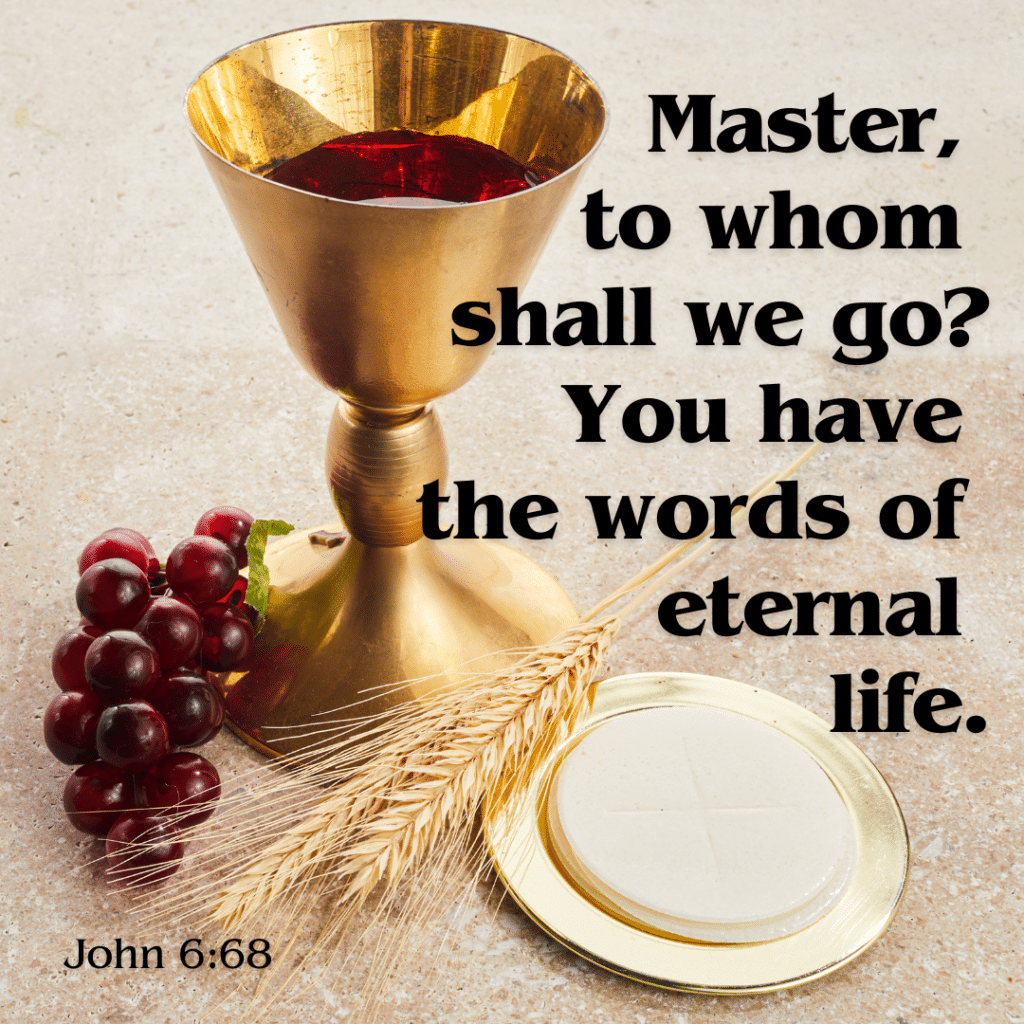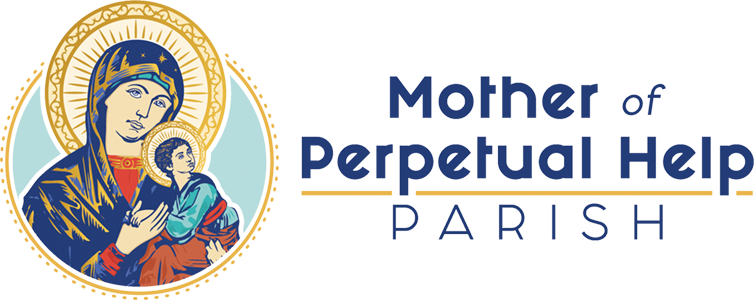The Words of Everlasting Life
This Sunday’s Gospel concludes “The Bread of Life Discourses,” where we read from the Gospel of John. This week’s readings, all of them, are jam-packed with so much of our Christian faith, some of it seemingly uncomfortable. However, when we break it down, we see the wisdom in it all. If you want to read this upcoming Sunday’s scriptures, you can do so at the USCCB’s website here.
Out of Reverence for Christ
The second reading has some amazing teachings on the sacrament of marriage, that on the onset, seem like supporting a power imbalance in marriage. However, this happens because parts of the reading are often taken out of context. Ephesians 5:22, for many women, is the uncomfortable verse, especially in modern times. “Wives should be subordinate to their husbands as to the Lord.” It is so out of context without the verse before it, “Be subordinate to one another out of reverence for Christ.” and the ones after: “Husbands, love your wives, even as Christ loved the church and handed himself over for her.” In Paul’s day, this was radical teaching – supporting women, who were still sold into marriage with a mohar (a kind of dowry) and were mainly considered property in those days. In modern times, this reading in its entirety still rings true. The additional verses around verse 22 offer the balance. We are to be submissive and kind to each other. Make decisions together. Comfort one another. Trust each other and forgive each other.

Teaching Out in the Open
In last week’s Gospel, Jesus doubled-down on His Eucharistic teaching, that He is the Bread of Life. Through this journey through John 6, we have seen the Biblical evidence of the Eucharist, an evidence that some protestant “Bible Churches” often deny. This week, we see that this denial was a reality even during Jesus’s public ministry. There is one verse that sits between last week’s Gospel and this week’s Gospel – verse 59. It says, “These things he said while teaching in the synagogue in Capernaum.” I think it is important to note that Jesus was very publicly teaching that He was the Bread of Life, right in the synagogue. This was not off the beaten path somewhere – He was teaching where both his disciples and other Jews could hear all his teachings. Yet, he did not make a clarification or say it was a metaphor.
This Saying is Hard
In John 6:60-62 we read, “Then many of his disciples who were listening said, ‘This saying is hard; who can accept it?’ Since Jesus knew that his disciples were murmuring about this, he said to them, ‘Does this shock you? What if you were to see the Son of Man ascending to where he was before?'” Jesus is not backing down, and some disciples decided to leave. This is the only time in the Bible where we see disciples leaving because of a doctrine Jesus taught. In John 6:66, it says, “As a result of this, many [of] his disciples returned to their former way of life and no longer accompanied him.”
To Whom Shall We Go?
Then Jesus turns to the Twelve, and Peter is reassuring. In verses 67-68 we hear, “Jesus then said to the Twelve, ‘Do you also want to leave?’ Simon Peter answered him, ‘Master, to whom shall we go? You have the words of eternal life.'” This beautiful verse highlights Peter’s growing faith, but also a truth for us in this modern age. It is not fashionable or cool to have faith. We are told by society that to be learned means to be a skeptic or even atheist. The truth, the real truth, is that skepticism and atheism offer nothing. These philosophies are empty and hollow. When we see the fruits of this society all around us, the words of Peter ring true, because if we do not go to Jesus, there is nothing or nowhere else to go. Only Jesus offers eternal life and salvation. The peace the world cannot give.
Look Here for More
Fr. Samuel Keyes has a great article here called, “Unless you Gnaw and Chew My Flesh…” that is a great look at John 6. This week, I am also going to recommend a book. It’s St. John Paul II’s book, Theology of the Body. Originally published in 1997, this book is a valuable resource and comprehensive guide to all things involving couples.
